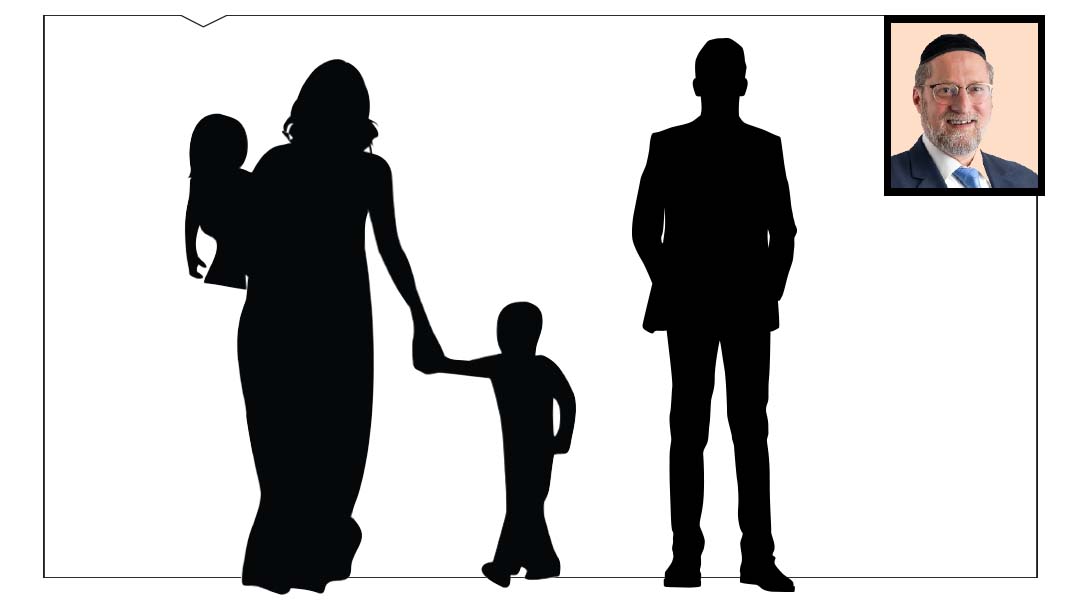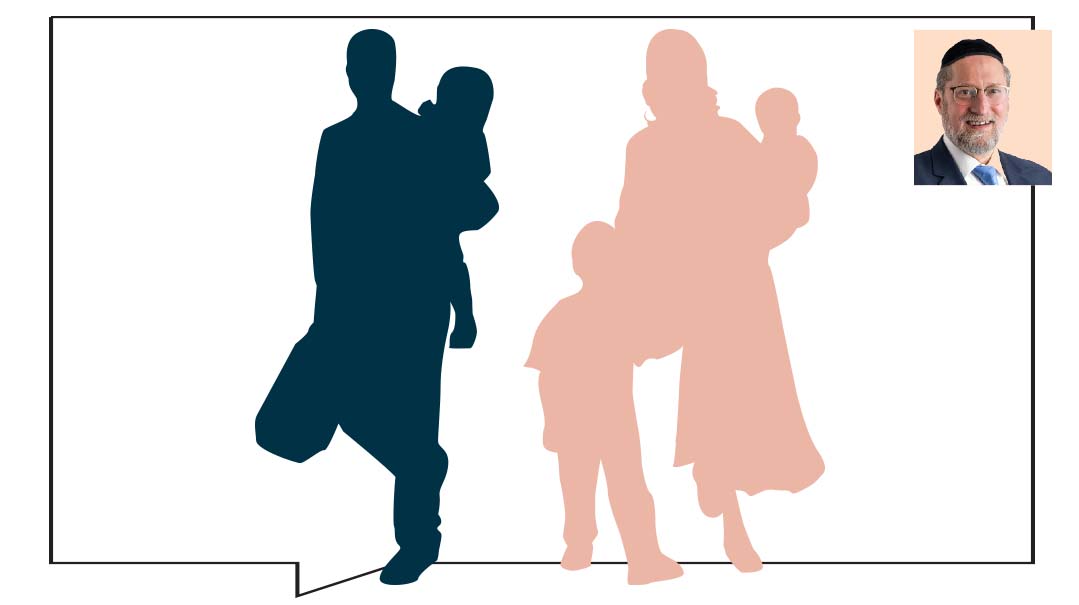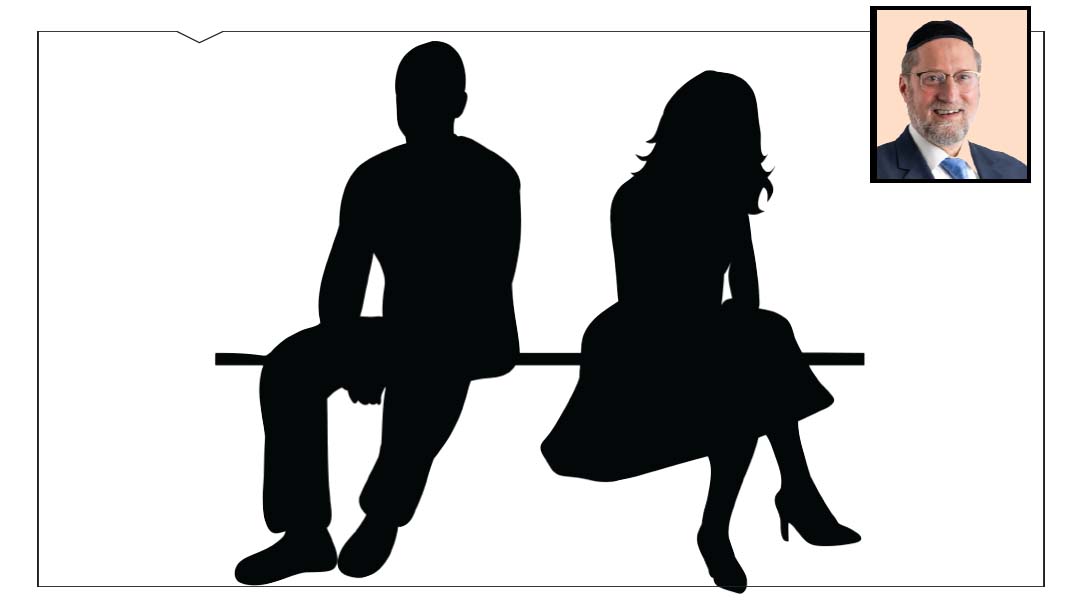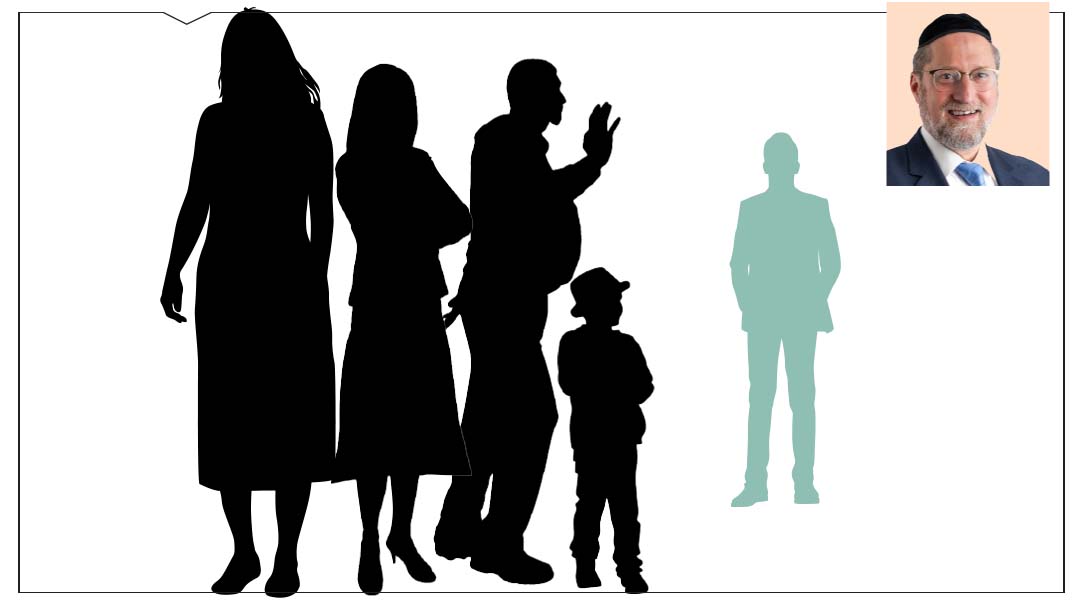How Can I Not Feel Resentful When He Contributes So Little?
| December 28, 2021If you focus on what your husband is doing for you, you’ll find your resentment lessening rather quickly

Written with Zivia Reischer
Rabbi Shafier,
Thank you for your column.
My husband is a good guy. He tries to spend time with the kids, he learns, he davens with a minyan, and he certainly supports us, but I feel he does nothing for me. I spend my day cleaning, cooking, and taking care of the house, and he just comes home and acts like a visitor. Even on Shabbos, he barely helps. I hate to admit but it bothers me so much that I find myself lashing out at him. How can I not feel resentful when he contributes so little?
A woman once asked me a similar question
She said to me, “My husband does nothing for me. He’s a good provider, he’s responsible, but he does nothing around the house. I take care of everything. It’s like he checks in at night and checks back out in the morning. I get nothing from him.”
“Okay,” I said. “You live in a house, a very nice one, in fact, right?”
“Yes.”
“You drive a nice car, right?”
“Yes.”
“You have a bunch of kids, and a number of them are learning in kollel, right?”
“Yes.”
“Let’s do the math. What do you think you pay in tuition and in support for kollel?”
“I don’t know.”
I helped her with the math, and between supporting two sons-in-law and six kids in yeshivah, it was about $100,000 a year. That’s $100,000 after taxes, so he probably had to earn $130,000 before taxes just to pay those expenses. That’s a lot of money.
“Tell me,” I said, “What time does your husband leave the house?”
“About six in the morning.”
“What time does he come home at night?”
“Usually around eight or nine.”
“He probably takes a two-hour lunch break, right?”
“No,” she answered. “He quickly gobbles a sandwich at his desk.”
“I’m sure he takes off a couple of afternoons a week to play golf, no?”
“No, he never takes time off.”
I waited for a long moment and then said, “Do you appreciate what your husband is doing for you? He’s slaving away, working day and night, so that you and your children should have a house, food, clothing, and a Torah education. Look around your house and see what you have. Then say the words, ‘What my husband gives me is astonishing.’ ”
She stood her ground. “But he’s not the kind of husband I wanted,” she said.
“Listen to what you just said,” I answered. “He loves you. He takes care of you. He takes care of the kids. He’s a good provider. You see so many positive traits, how can you not appreciate him? How can you not feel an overwhelming sense of, Wow, look what a great husband he is?
“You can’t see it because you only see one thing. Over and over your mind plays that tape: He’s not the husband I wanted. This isn’t the kind of relationship I envisioned. You don’t realize it, but you’re brainwashing yourself. You’re literally creating a reality that has no connection to what’s really going on.”
Let me be clear. I don’t think that husband is doing his job. She couldn’t articulate it, but she was lonely. She felt like she didn’t have a relationship. She had a big house and cars and money, but she felt like she didn’t have a marriage. It’s a husband’s responsibility to give his wife the attention that she needs. That’s his part. But regardless of what he’s not doing, she still has to appreciate what he is doing for her.
Along those lines, I think if you focus on what your husband is doing for you, you’ll find your resentment lessening rather quickly.
Appreciate Your Spouse
Marriage takes work.
A good marriage requires a good amount of work.
A great marriage requires a great amount of work.
Many people know that, but they don’t know what it means to work on a marriage. In previous columns we discussed romance as one of the tools that cement the love in a marriage, but there are many others. One of the most misunderstood tools that bond is appreciation.
Hakaras hatov doesn’t mean being grateful for the good. It means recognizing the good. We are all grateful — in theory. The problem is that we think there is nothing to be grateful for.
I once gave a six-week intense Marriage Bootcamp. Most of the couples had been married for over ten years and many were experiencing trouble in their marriages. After a few weeks of hearing the complaints each spouse had about the other, I felt they needed some perspective.
I reached out to a support group for older singles, explaining what I was looking to accomplish, and asked them if they would be willing to share their stories of what it was like to be an older single in the frum community.
A number of them volunteered, and it was heartrending. Story after story of never knowing where to place themselves, never fitting in, every Yom Tov a nightmare. What it’s like attending the wedding of a much younger sibling or niece. I was trying to share with these couples the brachah that they have — but seemed to have forgotten.
The Steipler Gaon writes that one of the ways a person recognizes the benefit he has from his spouse is to imagine what his life would be like now if he were still single. Imagine that I’m 30, 35, 40 — and still not married. How would I feel?
Unfortunately, it’s rare for either a husband or wife to appreciate how vastly improved their life is because they are married, and what their spouse does for them. The more she cooks, cleans, takes care of the family, the more likely he’ll take it for granted. The more he works, learns, and supports the kids, the more likely she won’t notice it.
Men, let’s try a small experiment. Open your dresser drawer and look at the neatly arranged socks. A few days ago, they sure didn’t look (or smell) like they do now. A heads up: There are no elves that come at night and tidy up. Your wife laundered them, folded them, and put them there.
Look around the house. A man will quickly see that he owes his wife a tremendous debt of gratitude. Gentlemen, if your children are clothed and showing up to school healthy, happy, and well-fed, you owe your wife a deep debt of gratitude.
Women owe their husbands a tremendous amount too. Think back to when you were going out and weren’t really sure if you would ever find your bashert. Most women have had that moment of doubt and fear. Relive that moment for a while, and you will find yourself incredibly grateful that you have a husband. But like so many blessings, within a short amount of time, everything they do just becomes a fact of life.
Want a great marriage? Here’s a two-part exercise that’s a great place to start. Part one goes like this: Write down the benefits you receive from your spouse. If you’re the husband, you’d better bring two pads of paper. If you don’t come up with a very long list of what you owe your wife, something is wrong. But, if that’s the case, do the next step: What if she weren’t in your world? If she weren’t here, what would fall apart? Now write it down. Ladies as well.
For part two, once you’ve written your list, read it out loud to yourself every day for the next 30 days. For ten minutes focus on how vastly improved your life is because of your spouse. You’ll feel closer and more appreciative, and it will be a whole lot harder for you to get upset.
Rabbi Bentzion Shafier is the founder of TheShmuz.com, a life-changing mussar shiur that is available on TorahAnytime, The Shmuz Podcast and The Shmuz App. His newest book release, The Ten Really Dumb Mistakes That Very Smart Couples Make, is available on TheShmuz.com and will hit Jewish bookstores later this year.
Note: This column is intended to offer an understanding of the mechanics of a good marriage. In situations of chronic abuse, a qualified professional should be consulted.
(Originally featured in Mishpacha, Issue 892)
Oops! We could not locate your form.






